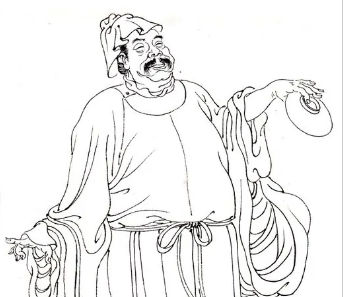In ancient China, people's names and zi (courtesy name) often carried the expectations of their family and personal qualities. Fan Xu, a disciple of Confucius, had the courtesy name of "Zichi," which embodied profound cultural meanings behind his name and zi. This article aims to explore why Fan Xu chose the zi "Zichi" and analyze its impact on his life. Firstly, let's delve into Fan Xu's historical background. Fan Xu was a native of Lu during the Spring and Autumn Period, and he was renowned for his loyalty and filial piety as one of Confucius' disciples. In Confucian classics such as "The Analects of Confucius," Fan Xu's image is often associated with filial piety, and his words and actions reflect the ethical and moral values emphasized by Confucianism.

Regarding why Fan Xu chose the zi "Zichi," we can analyze it from several aspects. Firstly, "Zi" was often used in ancient times as a respectful title for juniors or disciples, as many of Confucius' disciples took "Zi" as the prefix of their zi, indicating that they were students of Confucius. The character "Chi" has profound implications, which may be related to Fan Xu's personality traits and style of conduct. "Chi" in ancient Chinese has the meaning of slow and cautious, possibly suggesting Fan Xu's attitude towards handling affairs - cautious and not impatient. In Confucian culture, deliberation and stability are considered important virtues, which align with Fan Xu's image of loyalty and filial piety presented in the literature.
Moreover, the character "Chi" may also reflect Fan Xu's attitude towards knowledge and cultivation. Confucius once said, "Learning without thought is labor lost; thought without learning is perilous." Fan Xu might be a person who thinks deeply and reflects constantly when studying and practicing Confucian teachings, which is reflected in the character "Chi." Fan Xu's zi "Zichi" not only embodies his personal characteristics but also reflects the influence of Confucian culture on him. As a disciple of Confucius, Fan Xu inherited Confucius' teachings and took filial piety and loyalty as his guiding principles for action. His zi "Zichi" is both a description of his personal qualities and an affirmation of his scholarly attitude.
In conclusion, Fan Xu's zi "Zichi" contains profound cultural significance. It is not only a summary of Fan Xu's personality but also a commendation of his scholarship and cultivation. Through analyzing Fan Xu's zi "Zichi," we can gain a deeper understanding of the tradition of names and zi in ancient Confucian culture and its impact on individuals and society. Fan Xu's story tells us that a person's name and zi are often external manifestations of their cultural background and values, worthy of our careful appreciation and inheritance.
Disclaimer: The above content is sourced from the internet and the copyright belongs to the original author. If there is any infringement of your original copyright, please inform us and we will delete the relevant content as soon as possible.































